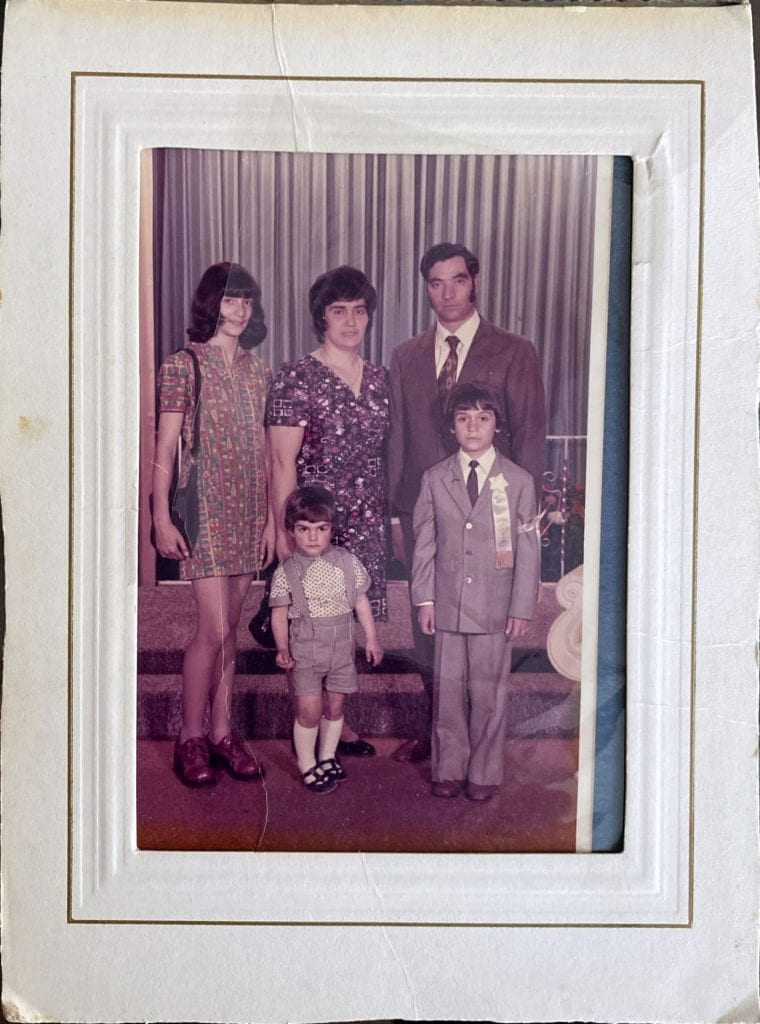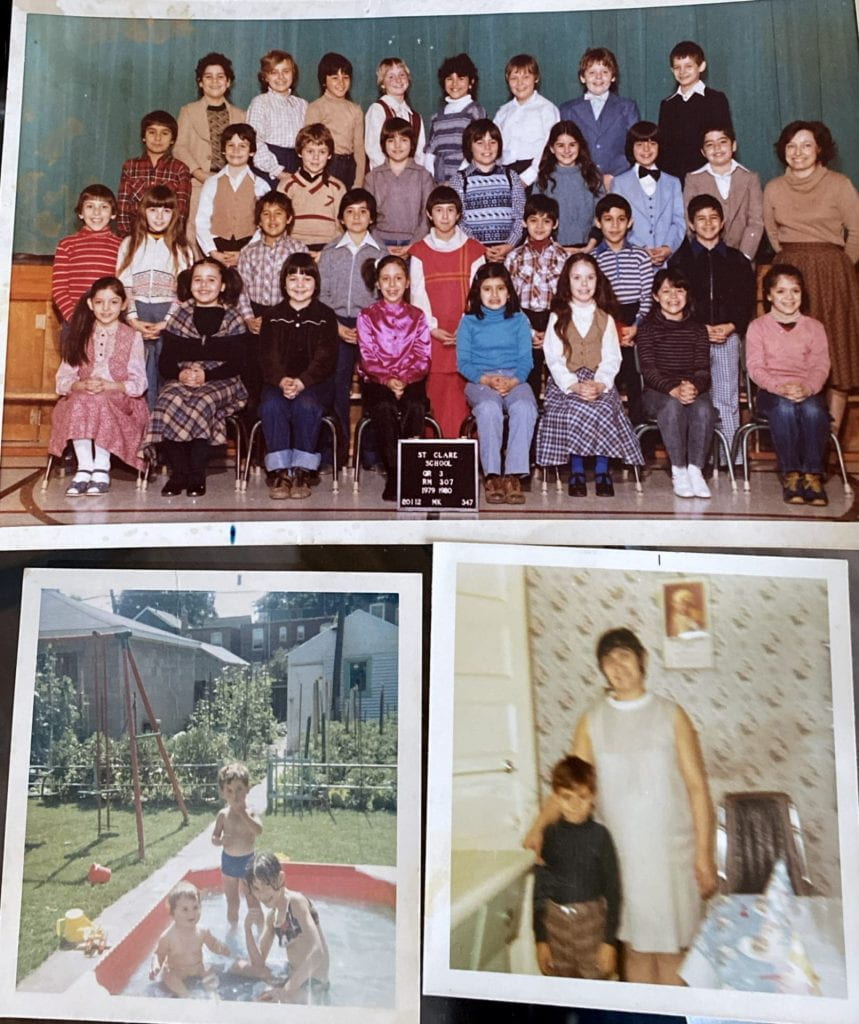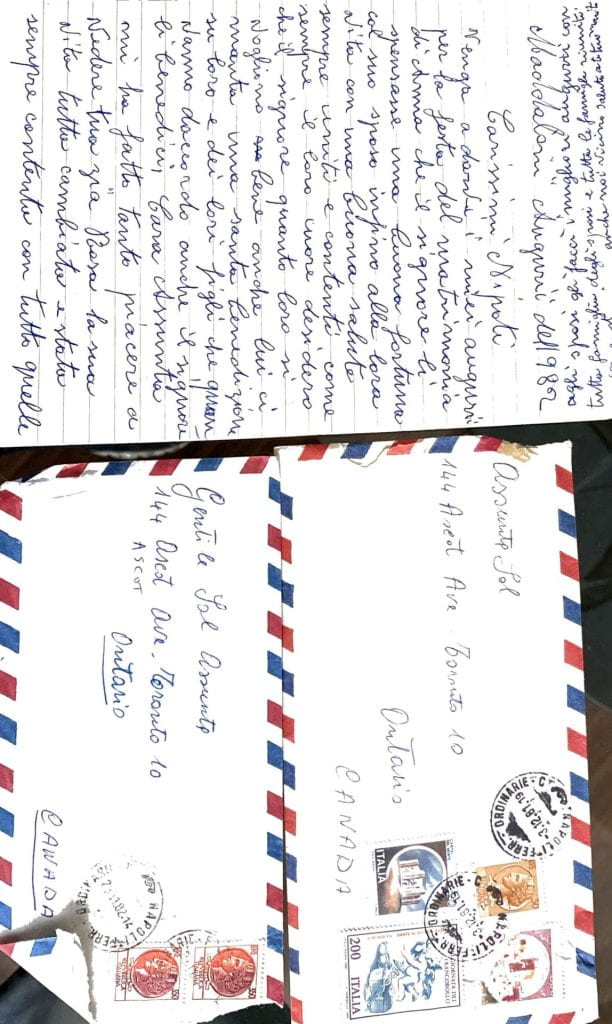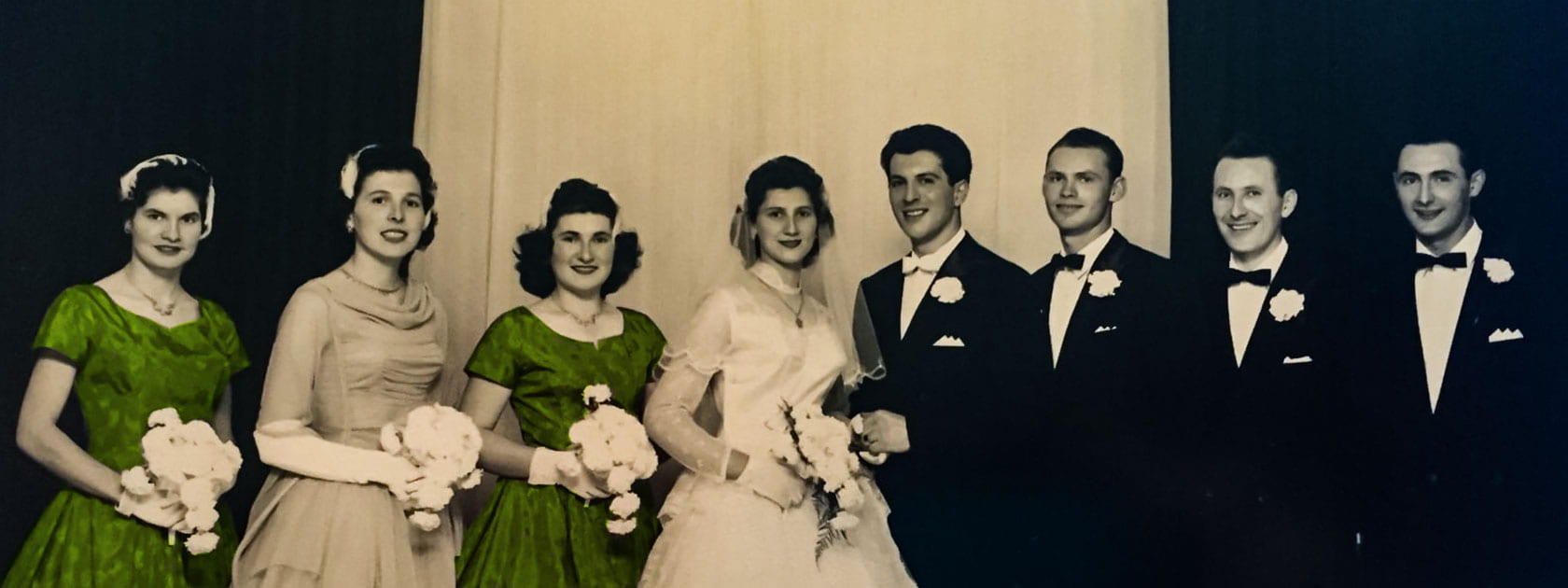Written by Joshua Sol

The Italian-Canadian LGBT experience is a unique one, and one that needs more visibility in wider Canadian culture. That is precisely what this piece sets out to do as I speak with my uncle, Angelo Sol.
Table of Contents
Introduction
The LGBT community is underrepresented in the Italian-Canadian Heritage Space and because of that understanding the views of this minority group is almost non-existent in academia. However, I am lucky enough to have an uncle who can bring a new perspective to this marginalize community. My purpose in interviewing him is to get a better grasp of an ill-understood part of our heritage. Back when my uncle was a child many Italians were thought of taking opportunities from “real Canadians” just like the immigrants of today are sometimes in society; Marco Micone highlights this Italian experience in Voiceless People. An Italian LGBT not only had to contend with the discrimination of the Anglophone Canadians, but also had to deal with internal Italian discrimination; being gay was not thought of highly which only recently began to change in the Italian community. My Uncle is the result of two worlds colliding, and he is the only one who can make any sense of it. He has a unique perspective, and it would benefit us all when shared.
Interview
My interview with Angelo Sol above addresses issues of the LGBTQ community and Italian immigration to Canada. During the interview, the camera tilts or falls to the side twice but I continue the interview while fixing the camera angle rather than stop the interview and the flow of the conversation. As my first time time conducting an ethnographic interview, I did not prepare for something like this even though Professor Russo discussed these incidents during the training. My regret for this occurrence during the interview, and I am grateful to uncle Angelo for his kindness during these moments.
Interviewing Angelo, my uncle was a very eye-opening experience for me. For a good portion of my life, I was under the impression that since my uncle was not born in Italy, he had a lesser connection to Italy than my father, who came to Canada at the age of two. I learned however that, in the grand scheme of things, Angelo has what I would say the greatest appreciation of our motherland and more so than anyone else in the family. Since he did not have the connection of being born in Italy, it led him to work on that Italian connection instead of taking his heritage for granted like others in our family and in the community. He lived in Italy for months when he was a young adult, and as a result, he speaks modern Italian fluently with the dialect he learned while growing up in the immigrant community. He keeps in contact with our Italian family the most out of the rest of my relatives as well as being the one holding onto all the letters from 40 years ago. Despite this he sees himself as primarI’lly Canadian and considers Toronto as his home, but this is not a paradox of identity for him. He is a proud Canadian while also looking to his heritage for longing as well as a solid foundation of his identity. His affiliation with his heritage made me reflect more about my own heritage as I had never felt a strong connection to my Italian heritage because I never spoke the language and do not know how to cook most Italian meals. My uncle has inspired me to be active in my heritage and not just a passive acknowledgment of where I have come from. I think his own experiences will change me and anyone of my generation “in my shoes”—with similar experiences of Italian heritage—for the better.
The latter half of the interview with my uncle addresses the LGBT community. Originally, I was only going to ask one or two questions relating to his sexual identity but his answers were giving not only a vivid picture of his life but how Italian immigrants relate to the LGBT community in general. Preparing for the interview, I already knew my extended family was not always the kindest to my uncle. However, hearing him explain to me his view on the Italian-Canadian immigrant communities in that they have been frozen in time while Italians in Italy have become more accepting was very intriguing to me. I always assumed it would be the other way around, as I had always imagined those willing to move halfway across the world would be the more open-minded group. That to me also put into perspective the comparison my uncle makes in the interview about Italians in Italy and Italians in North America when he says that the Italians in North America and those in Italy have almost different cultures now and that the immigrants seem to hold more to tradition and the old values rather than those in Italy Proper.
This Interview gave nuance to what it means to be an Italian and an Italian-Canadian. One would not describe my uncle as a “generic” Italian in most regards, and he is one of the most Italian men I know.
Transcript
Below is a summary of the interview. The semi-structural interview allowed for me to use the questions that were already approved for this project and follow up with questions when necessary for this unique discussion with my uncle.
| Questions | Answers |
Date of Interview | October 12th. |
Name of Interviewee(use initials if the person wants to remain anonymous; only person conducting interview knows the person’s identity) | Angelo Sol. |
What age group/generation are you in? | Generation X. |
Do you identify with your cultural background and heritage | Absolutely. |
Did you grow up speaking a language other than English or French at home? | Yes, Both his Parents spoke Italian at home, so it was a constant of home life. |
Did you grow up in or live currently within an ethnic community of your own heritage or of a different heritage? | Yes, he grew up in St. Clair and Dufferin in Toronto, which when growing up was very ethnically Italian. |
What brought our family to Canada? | The Mother’s side of the family convinced his parents Canada would be better for raising a family. |
Did you experience any obstacles and barriers in Canada as a family of immigrants? | Yes, we were seen as the other at the time in Canada, being very visible in our customs and traditions. |
Were any family heirlooms brought with our family from Italy? | Some jewelry and an old moving trunk |
Were letters exchanged with family back in Italy? | Yes, plenty, and most have been saved for all these years. |
Where is home for you? | Toronto, as it is where he was born and raised |
How has being part of the LGBT community connected to your Italian heritage | Maybe, I always feel the connection to the minority communities I am a part of no matter where I am the world. |
Was it hard growing up as a man of Italian heritage who also happened to be LGBT? | The culture of ignorance and fear made him feel as if he was forced to be in the closet, as Italian immigrants tend to be very conservative in their views |
Have Italian communities softened their approach to the LGBT community over the years? | I feel as if the Italian community in Canada is behind in accepting what modern society is, as even Italians in Italy have become more accepting than the immigrant communities. |
Gallery


Bibliography
All photographs included have been approved for sharing from the private collection of *Angelo Sol*.
Sol, Joshua. “The Interview of Angelo Sol – A Child of Two Worlds: An LGBT Italian Heritage Perspective.” Youtube. 12 October 2022. https://youtu.be/3zV0Nkz_778; access at Italian Communities in Canada: Heritage, Cultural and Ethnographic Studies as of November 2022, www.italianheritage.ca.
How to cite this page
Sol, Joshua. “A Child of Two Worlds: An LGBT Italian Heritage Perspective.” In Italian Communities in Canada: Heritage, Cultural and Ethnographic Studies, suprv. Teresa Russo. University of Guelph, 2 December 2022, Guelph (https://www.italianheritage.ca/2022/11/28/a-child-of-two-worlds-an-lgbt-italian-heritage-perspective/). Italian-Canadian Narratives Showcase (ICNS), Sanda Parmegiani, Kyra Bates, and Gurpreet Kaur.


